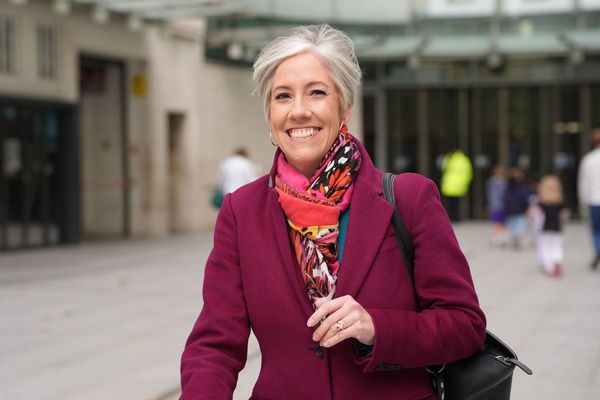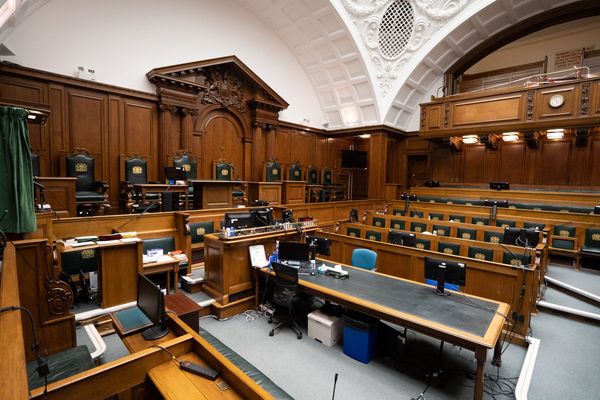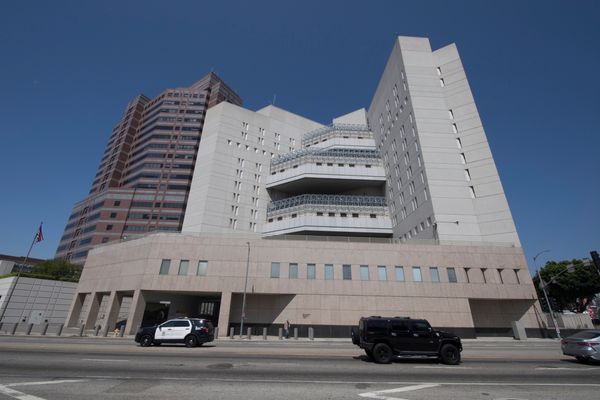
Way back on July 18, Crikey highlighted the ethical quagmire facing sporting teams that accept sponsorships from environmental polluters.
As a case study, the article referred to Woodside’s sponsorship of the Fremantle Dockers AFL team.
Our article said the community’s heightened awareness of climate change “must mean companies such as Woodside [should] expect to be targeted by environmentalists — and footy clubs such as Freo must anticipate being called to account for accepting sponsorships from big polluters. It’s the same for the Wallabies: brought to you by Santos”.
We said such sponsorships were “on the same spectrum as sporting clubs taking money from alcohol companies — and previously cigarette and asbestos companies”.
How quickly things change. It’s now come to pass that prominent members of the community are demanding a range of sporting bodies across various codes (including the Dockers) justify their taking money from polluters.
Australian cricket captain Pat Cummins is speaking out about team sponsor Alinta Energy; Diamonds netballers are raising objections about Hancock Prospecting; prominent Dockers supporters, a former player, and the inaugural football manager are complaining about Woodside; former Wallaby and now senator David Pocock is commenting in general on the ethical conundrum of sporting codes accepting sponsorships from companies whose modus operandi wreaks damage on our planet. (Disclosure: the writer is a foundation and continuing member of the Fremantle Dockers.)
And then there’s the potential problem of a code or club’s other sponsors being tainted by association with companies that are major polluters.
Using the Dockers as an example, the club is also sponsored by the well-regarded Royal Automobile Club of Western Australia (RAC), which is investing heavily in the First Electric Highway to service electric cars throughout WA.
The club is also sponsored by the City of Fremantle, which boasts of its commitment to climate action and lists practical steps to achieving that.
Dockers President Dale Alcock, whose company Dale Alcock Homes is also a club sponsor, responded to the Woodside critics saying the club is “respectful of the point of view of others” but that it will be maintaining the partnership with Woodside.
Universities also could have their reputations compromised by their association with a team or code which is sponsored not only by a polluting miner but also, say, a casino, a brewery or a fast-food company. McDonalds is ubiquitous across the AFL, for example.
The Dockers hit the jackpot being sponsored by all four.
The team also has an alliance with Perth’s Curtin University, which gives students access to the club’s facilities, and players and club staff access to academic staff and infrastructure.
Other universities sponsoring elite sporting clubs include Deakin University, which sponsors the Geelong Cats, and Griffith University, which sponsors the Gold Coast Suns.
And then there’s WA’s Super Rugby team Western Force, owned by Fortescue’s Andrew Forrest, which lists the University of Western Australia as a sponsor, while A-League football team Perth Glory is owned by mining and resources entrepreneur Tony Sage. (Forrest has a Phd from the University of WA and is a generous benefactor.)
Perhaps the time has come for sporting codes and teams to commission ethicists to assess the propriety of a particular sponsorship and how it aligns with not only its own financial needs but also the values and expectations of its members, supporters and the broader community.
Is it time for codes to push back against sponsors? Can clubs afford to? Let us know your thoughts by writing to letters@crikey.com.au. Please include your full name to be considered for publication. We reserve the right to edit for length and clarity.







